A funny thing happened after the theologically conservative Global Methodist Church officially launched on May 1: Dozens of United Methodists took to social media to voice their reasons for staying with the denomination that the GMC’s parent body has denounced as a “wilderness.”
The latest developments in the departure of disaffected traditionalists from The United Methodist Church made clear the reality that the separation will be a long process — legally longer than GMC backers want and emotionally longer than United Methodists desire at this point.
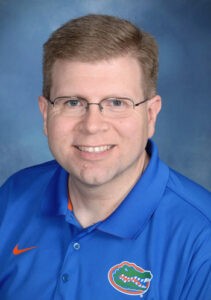
Jay Therrell
Jay Therrell, newly elected president of the Wesleyan Covenant Association, announced May 3 that 107 of the 700 congregations in the Florida Annual Conference were leaving to join the Global Methodist Church.
Therrell’s victorious proclamation drew a sharp riposte from Florida Bishop Ken Carter, who reminded the breakaway churches that leaving the UMC isn’t as simple as saying they’re gone. A long, complex process lies ahead, and the departing churches could lengthen the anguish if they choose to file suit in civil court to retain their property without having to pay the regional conference as required by the Book of Discipline, the collection of United Methodist laws.
Also, a retired United Methodist bishop, Mike Lowry, resigned from the Council of Bishops to join the GMC. In the traditionalist magazine Firebrand, Lowry published correspondence between him and immediate past council president Cynthia Fierro Harvey questioning Lowry’s participation in the GMC’s Transitional Council, an action that under United Methodist polity disqualifies him for continued UMC membership.
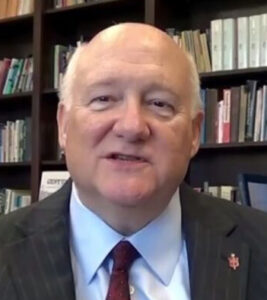
Mike Lowry
In his resignation letter posted in a Firebrand article, “Crossing the Rubicon: A Bishop Says Goodbye to the United Methodist Church”, Lowry stated: “All of us, myself most definitely included, must confess to our complicity to a current cultural captivity and repent of our sin (both individually and corporately). The time for theological toleration saturated with moral indifference is long past. The reality before us is of a diseased Christianity (of both the right and left) that must be countered by ‘rediscovering radical allegiance to Christ, recognizing the reality of the battle we are in, and reclaiming core Christian orthodoxy.’”
The Wesleyan Covenant Association held its sixth “Global Gathering,” broadcast live at dozens of churches, at which United Methodists were exhorted to “come out of the wilderness” as Therrell put it, and join the Global Methodist Church.
According to an article by Yonat Shimron of Religion News Service: “But as Keith Boyette, who next month begins his role as chief executive of the Global Methodist Church, told those watching the broadcast: ‘Separation is no longer in the future,’ he said. ‘Separation has occurred.’” Like Therrell, Boyette is a former United Methodist pastor and currently a lawyer who has been chief architect of both the WCA and the GMC.
In a Facebook post, Mississippi pastor Jon Altman attempted to resolve confusion over the split: “This sounds complicated, but really isn’t. There were no GMC churches or clergy on April 30. On May 1 there still are no GMC churches or clergy. The earliest there can be GMC churches is sometime this summer, following Annual Conference action to approve disaffiliation. Some pastors whose churches disaffiliate will wish to remain UMC clergy and will need new appointments. Some pastors whose churches disaffiliate will stay with their current congregations and will need to surrender their UM credentials. The process for receiving them as GMC clergy is up to the GMC.”
While the GMC’s launch garnered media attention, United Methodists staying with the 56-year-old UMC were boldly proclaiming their loyalty on both public and social media. They also searched their souls about why the split happened and what to make of the UMC going forward.
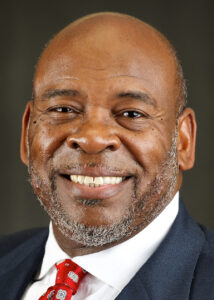
Bishop Jonathan Holston
Bishop Jonathan Holston of the South Carolina Conference told a local television station: “A cacophony of voices have been offering details and conversations about the future of The United Methodist Church — what will happen and when. What we do know is that the General Conference — which won’t meet again until 2024 due to the ongoing effects of the COVID-19 pandemic on our international membership — is the only body that speaks for the denomination.” Holston was further quoted that “as we seek clarity in the days and months to come, I am asking all South Carolina United Methodists to do two things: Be patient and remain focused on ministry and our mission of making disciples of Jesus Christ for the transformation of the world.”
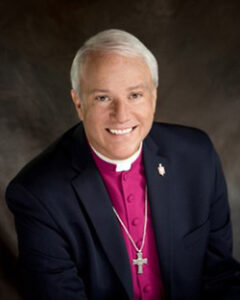
Bishop Thomas Bickerton
New York Bishop Thomas Bickerton, newly installed president of the Council of Bishops, urged United Methodists to “relaunch” the UMC: “In the midst of heartache of separation, let us launch and proclaim once again a unity of purpose in ministry together. In the midst of legal documents and term sheets, let us launch and affirm the reality that United Methodists are Bible-based, faith-driven, mission-focused and global in scope.”
The split affects United Methodists outside the United States as well, said Bishop Mande Muyombo, who supervises the UMC in Congo, Tanganyika and Tanzania. In his keynote address to the annual meeting of Black Methodists for Church Renewal, Muyombo urged African and African American church members to unite in the struggle against colonialism and racism — two allegations of bias that have been leveled against the Wesleyan Covenant Association, the GMC’s founding organization, by some African church leaders.
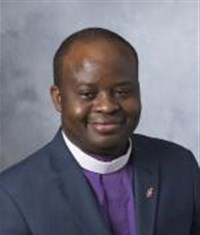
Bishop Mande Muyombo
“The political war that has been burning for decades within The United Methodist Church in the USA is increasingly doing great harm to the communities I’ve made a sacred vow to serve across the African continent,” Muyombo said. “Colonial mercenary tactics are being used with the aim of destabilizing our conferences and exploiting our worth of delegate numbers to win power and property at our denomination’s next General Conference.”
Social media was crowded with United Methodists proclaiming their loyalty or analyzing the split. Excerpts from some of the most frequently shared Facebook posts showed a range of responses.
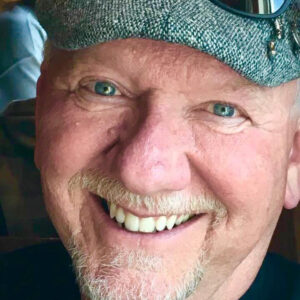
Gary A. Shockley
Gary A Shockley: “This is a day of new beginnings for the United Methodist Church as it relaunches today. A church of radical inclusivity. A church that reaffirms an older tagline: Open Minds, Open Hearts, Open Doors. A church that welcomes diversity of thought, theological understanding, gender, race and all of God’s children. A ‘big tent’ church where we don’t have to all believe alike to love alike. This is a day of new beginnings.”
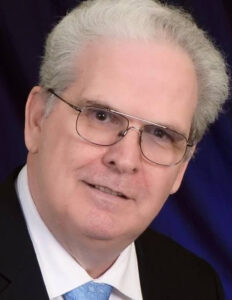
Bill Jenkins
Bill Jenkins: “As a church historian, (I can attest) there have been far more divisions than unions. I’ve been here before. Not only raised Baptist, I was a Baptist pastor for 20 years. But when time came, I could no longer support practices of the denomination, I made the painful decision to ‘split.’ I never regretted that decision. After studying John Wesley’s Social Principles, I concluded I had been ‘Methodist’ all my life. … Imperfect as I and the UMC are, I am staying the course and loving as many of God’s children as long as I am able.”
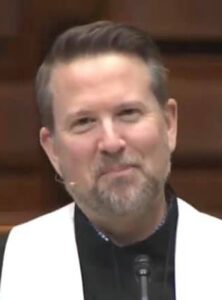
Brady S. Whitton
Brady S. Whitton: “I’ve been a United Methodist almost my entire life. One of the things I’ve always valued about The United Methodist Church is that we embrace a ‘big tent’ approach to the Christian faith. Some United Methodists are conservative, others are progressive, and most are somewhere in-between. We believe we are stronger together than apart, ‘many parts, but one body.’ United Methodists are a people who love and follow Jesus with all our hearts and when it comes to non-essential beliefs we embody John Wesley’s words, ‘Though we cannot think alike, may we not love alike?’”
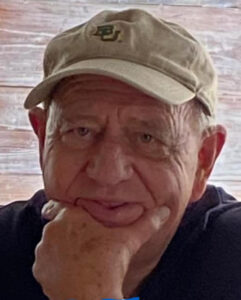
Fred Avon Winslow
Fred Avon Winslow: “The hastiness of the GMC. My first thought was ‘Oh no, we will have fights in the local churches over these issues and people!’ But then I remembered maybe the spirit will move again. … Local churches/members have made all kinds of changes about all kinds of issues about which we thought Scriptures were pretty clear. We, the UMC, have withstood many challenges and God was with us. God is with us again.”
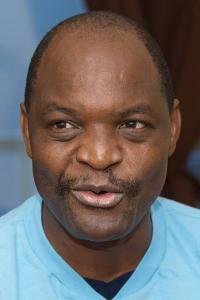
Lloyd Nyarota
Lloyd Nyarota: “(In Zimbabwe) we had this politician who was leaving his party to form a new (one). He said the announcement will be like thunder. The day came and he launched the party. The national headlines were ‘THE THUNDER THAT NEVER WAS.’”
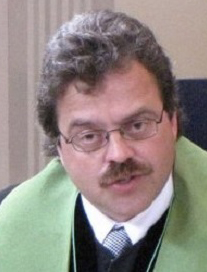
Allan R. Bevere
Allan R. Bevere: “I have no plans on leaving The United Methodist Church. … However, while I understand division is painful, I also think we have multiplied our pain by trying to salvage a marriage after both sides are no longer speaking to each other in civil terms and haven’t been for years. Do we really think that after decades of arguing over human sexuality, calling each other names, assigning derogatory labels, and generating too much heat and very little light, that after all this time we will figure out a way to stay together? ‘There’s room for all of us’ is a nice sentiment from 25,000 feet, but on the ground where we live, it’s not working.”
In a long post republished as an essay on United Methodist Insight, Lisa Schubert Nowling, lead pastor of First United Methodist Church in Bloomington, Ind., lamented the Global Methodist Church’s launch as a failure of The United Methodist Church to live up to its own standards.
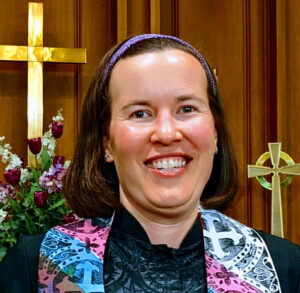
Lisa Schubert Nowling
“As we often confess, we have failed to be an obedient church.” she wrote. “We’ve failed to launch local church pastors who are more concerned about the people they’ve excluded than the people in the pews they might offend. We’ve failed to launch superintendents, bishops, district committees and boards of ministry who will consider the gifts and graces of candidates regardless of sexual orientation, gender identity or gender expression. We’ve failed to empower laity to re-orient us, not only around LGBTQIA+ inclusion, but also around racial equity, gender parity and economic and climate justice. As a clergy person, I’ve failed to love those who disagree with me. The people and congregations headed to the GMC are my Sunday school teachers, youth leaders, dear colleagues, and friends. While I’m heartbroken to lose them, I’m also still seething at those who supported the Traditional Plan in 2019. Now is the time for sackcloth and ashes.”
Another clergywoman, Dianne L. Tobey, lead pastor of Christ United Methodist Church in Cleveland, Ohio, had a more hopeful outlook on the split.
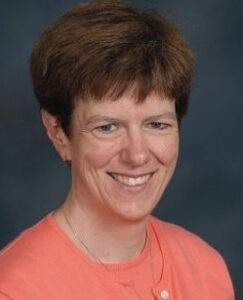
Dianne L. Tobey
“I am unabashedly a United Methodist,” she wrote in a Facebook post republished on United Methodist Insight. “I have considered other denominations, but time and again I come back to the people called Methodist — where we are encouraged to use our brains to reason, our hearts to love, and where grace is paramount. I am someone who values vital piety and social action — I love the liturgy and I love that the church is called to be in the world serving others in the name of Christ.
“I have been hurt by the church. I have been hurt to know that the church has played an active role in racism and sexism. I have been hurt every four years when I observe General Conference and see that once again the church has denied full membership to LGBTQIA+ persons. …
“And yet I have stayed and I will continue to stay. This is my church. To leave would be to allow it to be taken over by those I believe do not understand what it means to love a God who is by very name and nature love. I will stay, and I will continue to work for the full inclusion of ALL God’s children. That is what it means to me to #BeUMC.”
Cynthia B. Astle is a veteran journalist who has covered the worldwide United Methodist Church at all levels for more than 30 years. She serves as editor of United Methodist Insight, an online journal she founded in 2011.
Related articles:
Just when you think the United Methodist Church breakup can’t get any more difficult …
Here’s what you need to know about why United Methodists now appear headed for a nasty divorce


